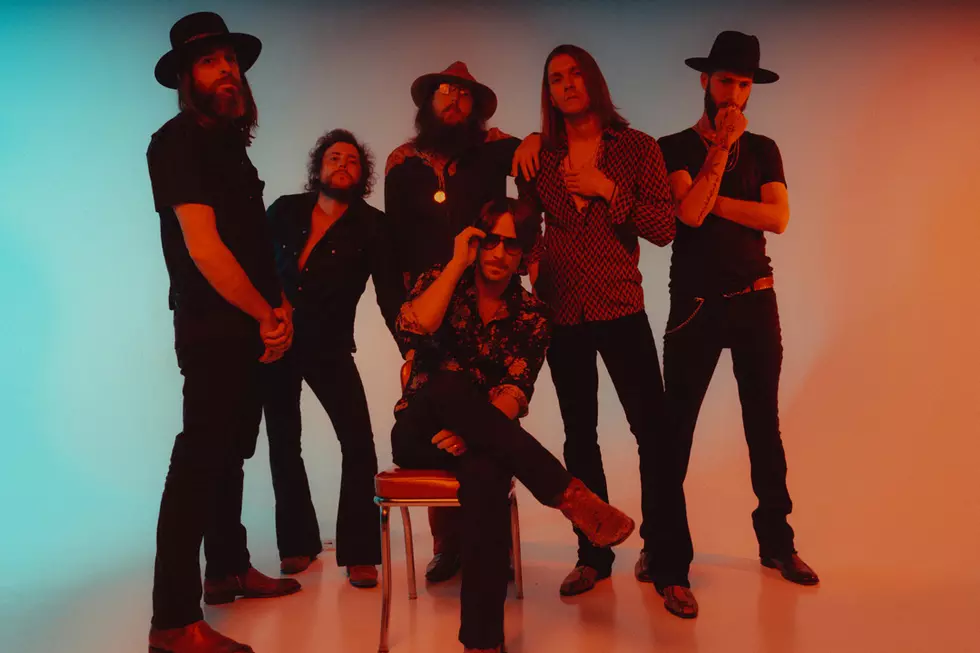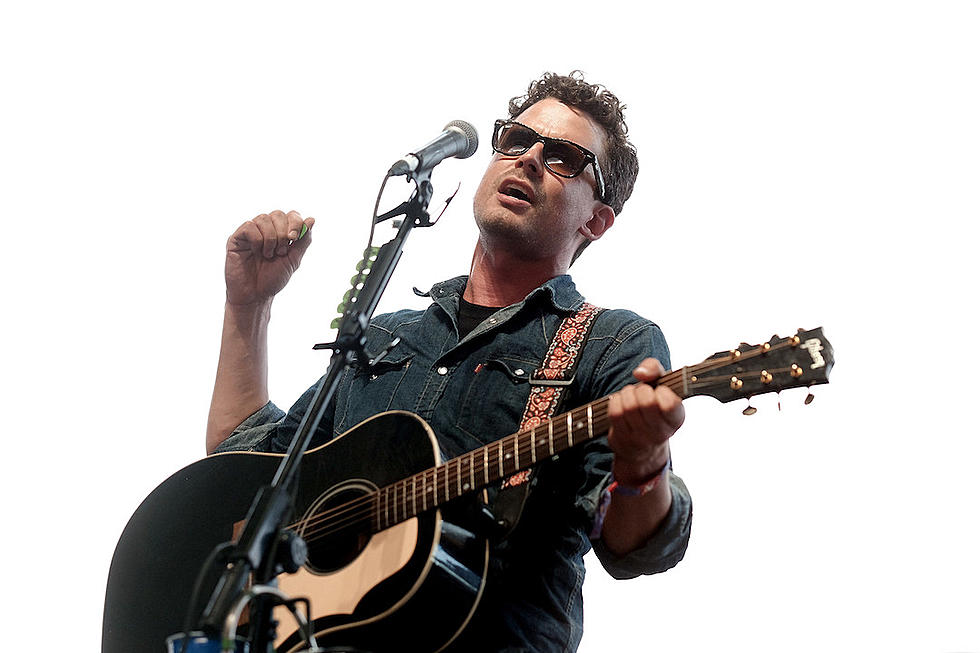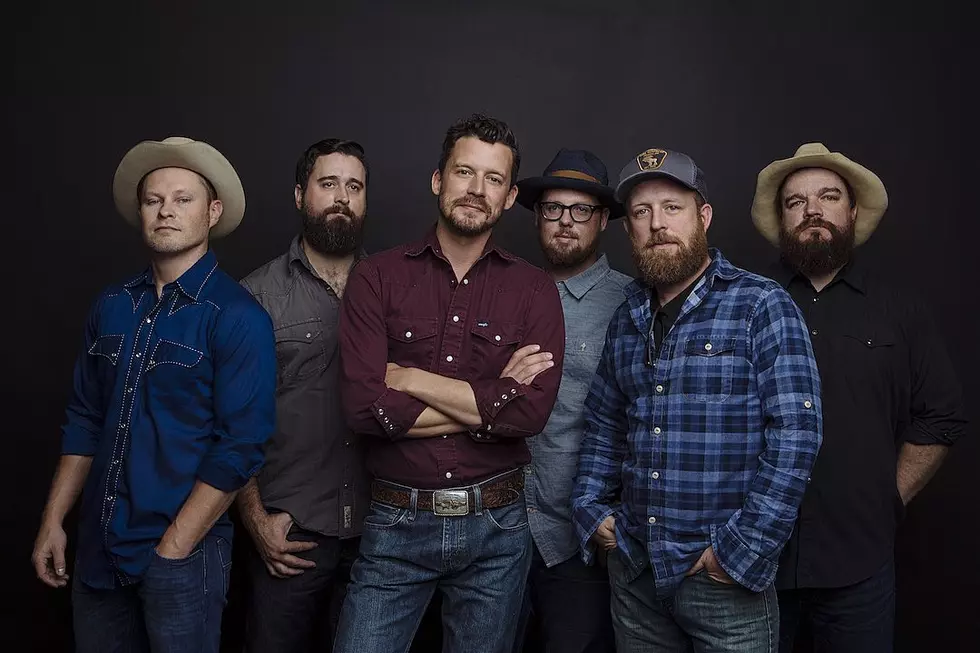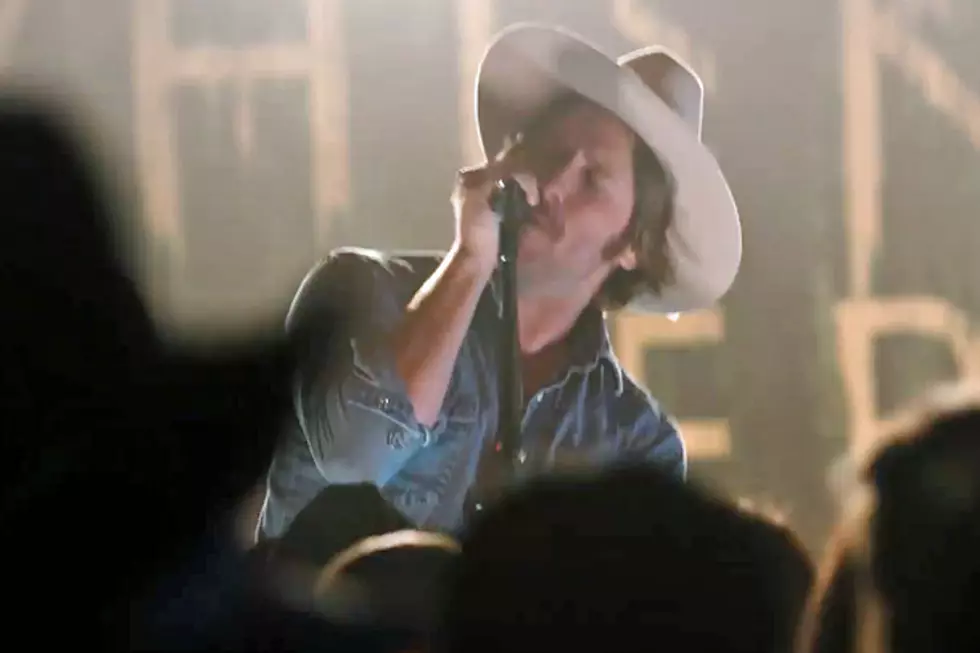
Whiskey Myers’ Long, Arduous Journey to ‘Tornillo’
Whiskey Myers guitarist John Jeffers says his band was the first one to drop when the COVID-19 pandemic began and the last to return when the threat became more manageable. During the two years in between, there were a few ... complications.
The first? Simple band economics. "So you know there's six of us on stage, but all six of us have families," Jeffers says a few hours before the group is set to play Shreveport, La. "There's a lot of pressure. You're not just worried about yourself, you're worried about 12 people and their families."
Don't forget about the families: This is hypothetical, but if the drummer of a six-piece country rock group has a daughter with a compromised immune system, that could scuttle everyone's plans to tour. Small children were the last to be eligible for the vaccine, and Whiskey Myers added two small children in 2020 and 2021. Singer Cody Cannon and his wife welcomed a baby boy named Ripp in February 2021 (they've just announced a second), while Jeffers and his wife welcomed their first son a few months earlier.
"We were at a special peak at that moment and they shut us down and we had to go home," Jeffers recalls. "It was pretty scary times, to be honest."
Tornillo, the group's first studio album since their triumphant, self-titled album in 2019, was built during the pandemic, and that tension stands out in some interesting ways. The first is in the raw, unprotected energy of songs like "John Wayne." Twenty seconds in and you're hit with a harmonica comparable to a caged lion's roar. The 10 (plus a 52-second opening instrumental) remaining songs are sharp, meaningful, guitar-fueled and ready for the stage. It's really hard to believe "The Wolf" (at over six minutes) wasn't recorded in front of a couple thousand fans.
A second listen reveals more. In fact, those who only know Whiskey Myers from Yellowstone may miss the cutting message of "John Wayne." "For the Kids" and "Heavy on Me" are two that tell the band's story in more plain-spoken language, the latter taking us to the day Jeffers rolled his ATV and nearly died. He counters his longtime friend and bandmate in several tangible ways.
"You know, we lived through it and we took care of our guys," Jeffers says, steering the conversation about the pandemic toward the light that eventually found them. "Everybody survived thank goodness, monetarily speaking. We're very fortunate to be back on the stages again just doing what we love."
Jeffers talked to Taste of Country for an episode of Dutton Rules: A Yellowstone 1923 Podcast. Below is a partial transcript of the conversation, with some questions edited for clarity.
Taste of Country: So many of the new songs have such a great live feel to them. Do you need to perform each one before you'll commit to recording it?
John Jeffers: No. Most of the time the process going into the recording is we kind of just get in a circle as a band, as a unit. And we run through all these songs. I think we had around 34 or 35 songs for this album. We kind of develop our own reaction as a band to see how well we flow through the music.
Is the recording process something you embrace or is it a step to get to the stage again?
We definitely enjoy the stage a whole lot better, but we like the studio. There's a lot of magic that happens there that you can't replicate anywhere else. And sometimes, going back to the live thing, if you do it live or if you do too much pre-production before the album, you can kind of waste some of the magic that does happen in the studio.
What was the darkest day of the pandemic for Whiskey Myers?
Day 1. I think we were in Cleveland and we had to make a decision. Do we go home right now, or do we play these next shows even though they're cutting capacities down? We had to cancel the shows and we headed home, which ended up being the right move. The next probably two or three weeks after that was the darkest. We started really listening to what was going on and we got a feel for it and it was, "Hey, we're not going back."
You've lived so much life in the last two years. You had a son, Cody had a baby soon after. The pandemic, your accident on the ATV — what songs on the album do some of those events show up on?
I wrote and sang a song called "Heavy on Me" on the record. I used to pray for a lot of stuff. Whenever people would have hard times, I used to pray, "Just go ahead and put it on me, because I can handle it. Take the load off of the feeble ones around me and put it on me, because I can handle it."
Well the last time I prayed that, I had that ATV accident. My wife was seven-and-a-half or eight months pregnant. We were moving into a brand new house during the pandemic. I fractured my skull and I had to get transferred to another major hospital. It really shows up in that song. I kind of got that prayer answered in a different way. It really made me open up my eyes to a lot of things. Not only wear your seatbelt, but a whole lot of other deeper stuff.
You're under-playing the accident a bit. I know you almost lost your hearing.
Yeah. I'm grateful for it. I'm grateful for what came out of it. But yeah, I definitely lost my hearing. I had total hearing loss for probably five or six months. We were gonna do a surgery on it — it was right behind this ear and I fractured my skull. We had some oxygen leaking in and we had some issues. We had some bubbles of oxygen that were getting into my main artery. We had some that we were worried about getting into my actual fracture. Long story short, it ended up OK. I didn't have to go through the surgery and I regained 60 or 70 percent of my hearing back.
Did I read that you had a bolt through your head?
That's what they think it was. I was kind of knocked out pretty good. I wasn't wearing my seatbelt. I wasn't being Evil Knievel ... I just took off real fast from a dead stop and we rolled out. We think a bolt punctured me right behind the ear and went in.
Wear your seatbelts.
You and Cody go back a long time. Were you childhood friends?
We were childhood friends. We grew up playing ball together. Our families have always known each other. We played baseball together growing up. We really got close in high school though, about 15, 16, 17 we got super close and we kind of never left each other's side since then.
There was an article where he talked about how he operates with blinders on. He doesn't pay attention to what's going on in the industry. He doesn't think about old music. Does anyone in the band have to balance that?
I do. I'm kind of that guy. I'd like to be the blinders-on-all-time guy, but I feel like I do try to — I don't concentrate on what's going on, but I try to stay up to date so I know. When me and the other guys who are semi-knowledgable get together and have conversations about stuff.
Can you give me an example where this has showed up in the music or your career in the last five years?
We had a song on the live album called "Bitch" that I sang. I'm pretty sure it showed up during that a little bit. I was a little angry and may have drank a couple too many Miller Lites at the time. I had pre-recorded that song and then I showed the guys as we went into the studio and everybody thought it was a no-brainer. So, we stuck with it.
How big of a lift was it to appear on Yellowstone?
Our mindset going into it was, "Oh, that's cool. Yeah, we're down to do that. We're open to do whatever." And then they're like, "Well, Kevin Costner is in it" and we're like, "Oh shit, that's pretty cool too." We didn't think a whole lot about it. We just thought we were going to go play on a show and it was going to be fun. But we didn't know how big the show would be. It opened us up to a whole new group of people that have never been exposed to our music.
Yellowstone: How Is James Dutton Related to John Dutton?
You Can Rent a Cabin on the Ranch From 'Yellowstone' - See Pictures
More From TheBoot








![Whiskey Myers Rank Their Top 5 Songs [Radio Texas Live Legends, On Demand]](http://townsquare.media/site/204/files/2021/08/attachment-whiskey-myers-podcast.jpg?w=980&q=75)

